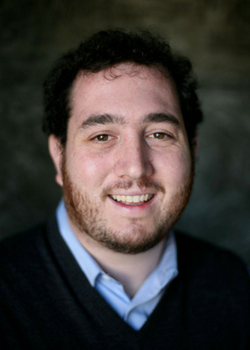"And Isaac loved Esau... and Rebekah loved Jacob" (Gen 25:28)
Parashat Toledot is a story of unwise parental love and the tragedy it engenders. At the beginning of the story, Isaac and Rebekah spend many lonely years praying for a child, and their prayers are finally answered with twins - Esau and Jacob. Rebekah and Isaac's long childlessness ought to make them particularly grateful for both of their sons. Yet, this isn't the case. From the outset, the parents divide their loyalties and their love. Isaac favors Esau, his rough-and-tumble boy, the skillful hunter and family provider. Rebekah prefers her mild-mannered Jacob, whom the text tells us liked to stay in the shade of the tent, presumably in her company.
The rest of the parashah is one long tale of the deceit, trickery, and misery that follows from Isaac and Rebekah's unequal application of love. Jacob deceives his brother for a birthright, his father for a blessing. Rebekah connives against her blind husband. Esau is left tearfully begging his father for words of love and kindness that the old man cannot or will not bestow in some of the Torah's most heartbreaking words: Barcheini gam ani, avi! " Father, have you just one blessing to bestow?" By the end of the story, the family is irrevocably broken, with Jacob on the run and Esau vowing bloody revenge. What began with so much promise ends with alienation.
In truth, the whole Book of Genesis is the story of the disastrous consequences of treating love like a zero-sum game, a limited commodity which must be rationed out and fought over. Again and again we read about characters who struggle for limited love - Cain and Abel, Sarah and Hagar, Isaac and Ishmael, Jacob and Esau, Rachel and Leah, Joseph and his brothers. In every case the result is violence, loss, and grief.
Rabbi Lawrence Kushner writes in his spiritual classic Honey from the Rock that learning that love is not a limited commodity is the great challenge of growing up. He writes:
"Is this not the great childhood problem-- and therefore the great human problem: To learn that it is good for you when other people love other people besides you? That I have a stake in their love? That I get more when others give to others?"
Genesis records the infancy of our People, when we were still young and selfish and did not know that there is always more room in an open heart. There is nothing inherently wrong with infantile narcissism; it's a normal part of human development, as long as it doesn't persist into adulthood. The sin is getting stuck in a world of suspicion and fear, of failing to mature into the comprehension that our world is not a zero-sum game, but rather we are part of a web of interconnection, caught, in Dr. King's prophet words, "in an inescapable network of mutuality, tied in a single garment of destiny." Then, we become destructive.
So much of our contemporary discourse, particularly in the spheres of politics and religion, in America and overseas, suggests that we as a culture are stuck in this mindset of scarcity; that we still believe that love and honor given to others is necessarily love and honor stolen away from us. This week, let's turn from the story of a broken family to the redemptive start of the month of Kislev, which culminates in the festival of Chanukah. Let's turn our attention ahead to the message of its candles: That light can be spread freely without diminishing the original light, that the shine of one candle is enhanced, not dimmed, by the brightness of its neighbor.
Shabbat shalom.

